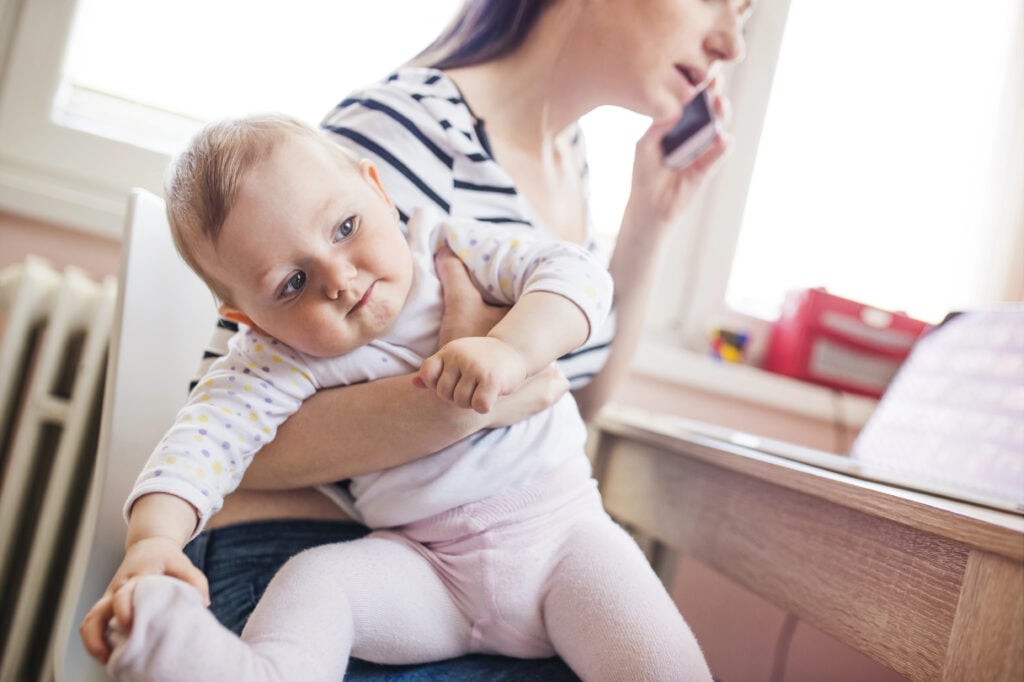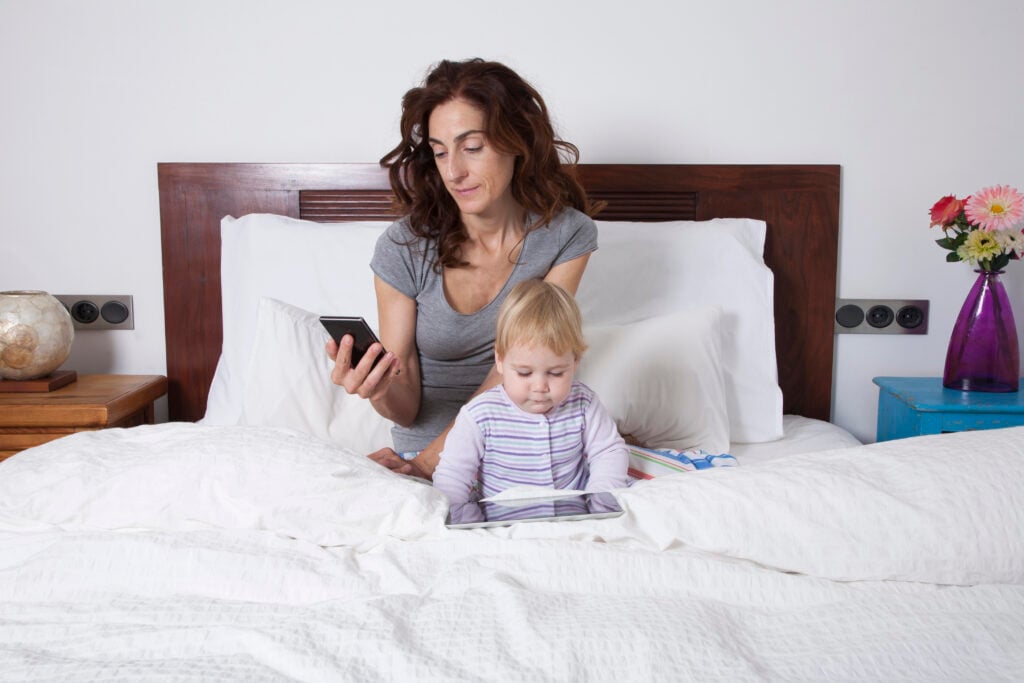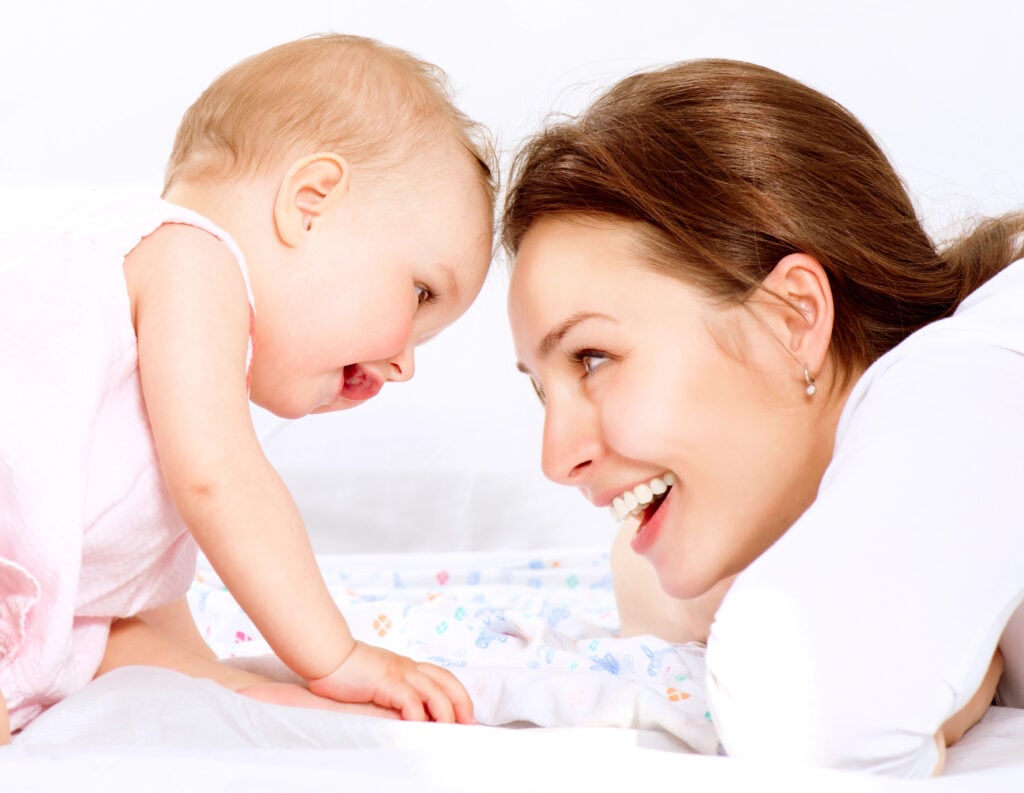
If you’re a parent, I know you’re exhausted. You’ve been running on too little sleep and not enough ‘me-time’ for at least the past [however old your oldest child is] years. It’s just a fact. It may also be why you’re engaging in a modern-day trend called “phubbing.”
It’s no wonder that the draw of our phones — an entire separate universe that conveniently fits in our pockets and can be entered from anywhere — is so intense. Our friends are there, so are our favorite shows, books, and shops. We can steal a minute of self-indulgence while running our kids’ bath or preparing supper.
However, experts are saying that this indulgence (not to say addiction) leaking over into active parenting time is too much, and that we should be judicious in balancing phone time and kid time.
What Is Phubbing?

A portmanteau of “phone” and “snubbing,” “phubbing” refers to those times when our kids are asking for our attention and we’re absorbed in a screen and fail to drag ourselves out into the real world to see and hear them.
Perhaps this happens because we’re paying bills and checking emails while working from home, or maybe it’s because Candy Crush and TikTok have our attention. Maybe we’re consoling a loved one in a crisis, or maybe we’re just caught up in a true crime podcast.
From our kids’ side, it looks the same: a parent staring at a screen and ignoring repeated pleas for attention.
Meanwhile, developers actively work to make their games and apps harder to put down, addictive little slow-drips of dopamine, and parents are spending more and more time glued to screens. (I know I’m guilty of it.)
What Are The Effects On Our Parenting?
One meta-analysis, published in Infant Mental Health, focused on studies that involved parents using smartphones in the presence of their children from birth to age five. This study divided smartphone use into two categories: “technoference,” which refers to moments when you stop to glance at your phone during in-person interactions, and absorption, in which the phone is the primary focus.
While the studies have some slight variance, the overall conclusions were pretty consistent: when parents are absorbed in their phones, they are less responsive to their babies’ bids for connection. These connections — that constant flow of moments in which the baby looks at the parent’s face and the parent responds with a smile, a word, or a touch — are invaluable in infant development, and smartphone absorption takes them away.
Technoference had similar effects, possibly at a lower level; however, the authors of the meta-analysis concluded that further research was necessary to confirm any difference between the two.
What Are The Effects On Our Kids?

One analysis published in the Journal of Pediatrics found that parental phone use had negative effects on kids’ socioemotional well-being.
The authors noted various studies supporting this, including one that found kids who experienced “maternal phubbing” were more emotionally vulnerable. They wrote:
“The children were whining and sulky, and their feelings were more easily hurt; they were more restless, had frequent temper tantrums, and were easily frustrated.”
Kids across these studies showed a pattern of learning that they could not catch a parent’s attention to share an achievement, and engaging in more risky and unsafe behaviors. They also found that children’s learning and development of skills were decreased when parents were involved with devices.
Specifically, one study was cited in which parents were asked to teach a two-year-old child two new words, with one group of parents distracted by their phones during the activity. Another had parents instruct their kids to run in an outdoor activity, with half the parents distracted by devices.
In both cases, the children performed better (learned the new words more easily and ran faster) with parental focus than with parental distraction.
So, Do We Need To Ditch The Smartphones Entirely?
If you’re like me, you’ve been reading through this and doing a lot of self-assessment.
I know there are times I’m too absorbed in my phone. Sometimes that’s because there are things on it that actually require my attention, and often it’s because of things that are just fun, entertaining, and absorbing. I’m working on reducing my screen use for several reasons, but I’ll be honest: it isn’t easy to do.
Can we use our phones more judiciously, or do we need to conclude that they should be off entirely? Is it time for us all to return to flip phones that only send and receive calls and texts?
The only honest answer to that is that every household and every individual parent will have to find the balance that works for them and their children.
That said, we can probably all make conscious decisions to leave our phones in our pockets, in our bags, or even in our cars, or charge them in another room, for longer periods of time, especially when we’re spending time with our youngest kids.
We can also all make the conscious decision to be honest about the situation when we can’t quite put our phones down for a moment to interact.
For older kids, it would be perfectly reasonable to say, “I’m sorry, I need one more minute to reply to this email, and then I can look at what you’ve made,” or “I know you need help with math, but I have to take this phone call first.”
Being intentional about our phone use and transparent about it with our kids can be a first step.
For our younger kids, especially infants, putting down the phone for more extended periods is more crucial because research shows that they need our faces and our undivided attention.

